If Beale Street Could Talk
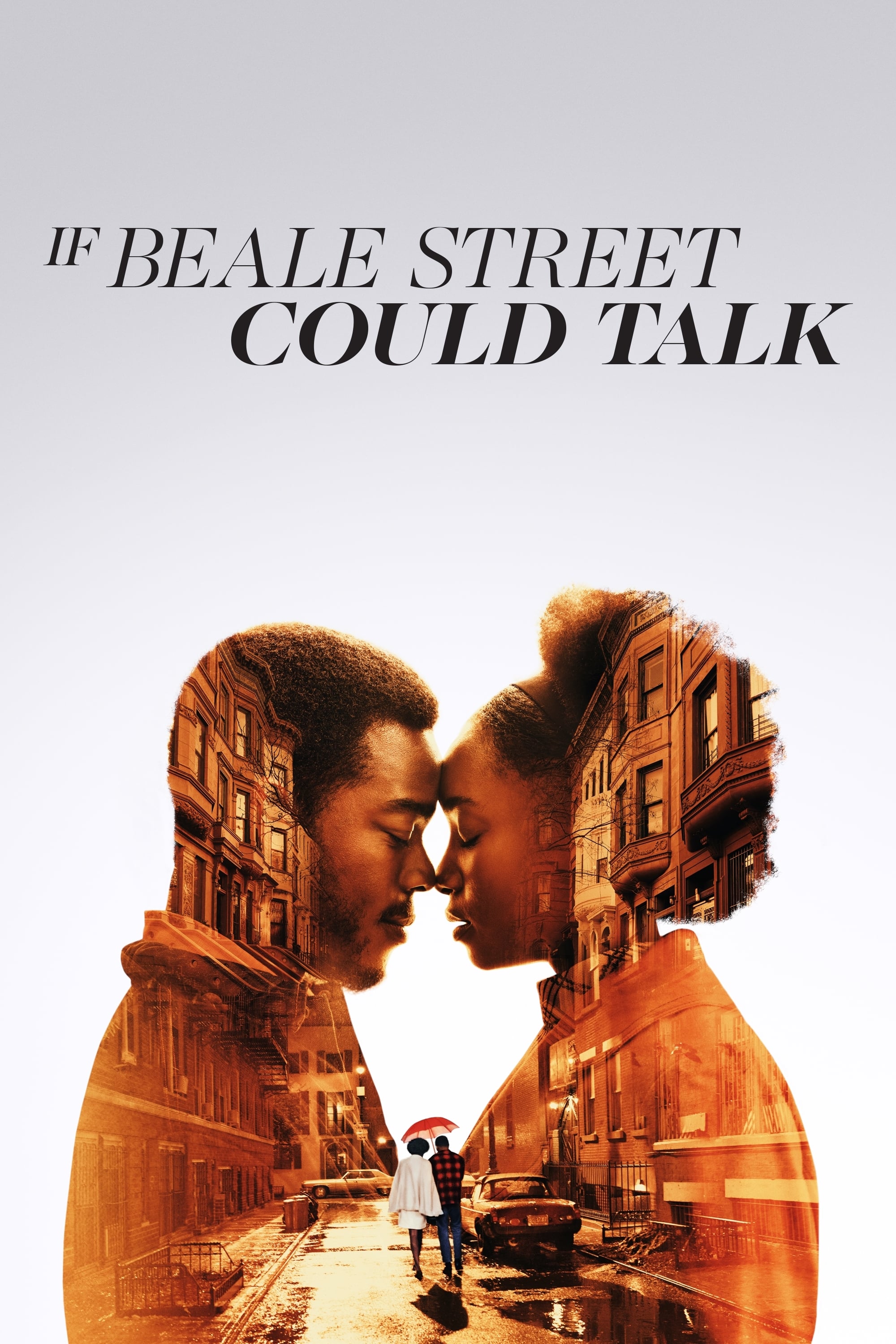
Reviews
Stephen Campbell
**_Beautifully shot, but emotionally languid_** > **Studs Terkel**: _Did you feel a sense of shame about a heritage that is really so_ rich_, when you accepted the white man's stereotype of yourself?_ > >**James Baldwin**: _I'm afraid that is one of the great dilemmas, one of the_ great _psychological hazards, of being an American Negro. In fact, much more than that. I've seen a great many people go under because of this dilemma. Every Negro in America is in one way or another menaced by it. One is born in a white country, a white Protestant Puritan country, where one was once a slave, w__here all standards and all the images, when you open your eyes on the world, everything you see, none of it applies to you. You go to white movies and, like everybody else, you fall in love with Joan Crawford, and you root for the good guys who are killing off the Indians. It comes as a great psychological collision when you realise all of these things are really metaphors for your oppression, and will lead into a kind of psychological warfare in which you may perish._ > >[…] > >_All you are ever told in this country about being black is that it is a terrible, terrible thing to be. Now, in order to survive this, you have to really dig down into yourself and re-create yourself, really, according to no image which yet exists in America. You have to impose, in fact - this may sound very strange - you have to_ decide _who you are, and force the world to deal with you, not with its_ idea _of you._ > >[…] > >**Terkel**: Nobody Knows My Name. _Why did you choose that title?_ > >**Baldwin**: _Well, at the risk of sounding pontifical, I suppose it is a fairly bitter title, it is meant as a kind of warning to my country. In the days when people called me "Boy", those days haven't passed except that I didn't answer then and I don't answer now. To be a Negro in this country is really - Ralph Ellison has said it very well - never to be_ looked at_. What white people see when they look at you is not visible. What they_ do see_, when they_ do _look at you is what they have invested you with. What they have invested you with is all the agony, and pain, and the danger, and the passion, and the torment - you know, sin, death, and hell - of which everyone in this country is terrified. As a Negro, you represent a level of experience which Americans deny. This may sound mystical, but I think it is proven in great relief in the South. Consider the extraordinary price, the absolutely prohibitive price, the South has paid to keep the Negro in his place; and it has not succeeded in doing that, but has succeeded in having what is almost certainly the most bewildered, demoralised white population in the Western world. On another level, you can see in the life of the country, not only in the South, what a terrible price the country has paid for this effort to keep a distance between themselves and black people. In the same way, for example, it is very difficult - it is hazardous, psychologically, personally hazardous - for a Negro in the country really to hate white people. He is too involved with them, not only socially but historically. No matter who says what, in fact, Negroes and whites in this country are related to each other. Half of the black families in the South are related, you know, to the judges and the lawyers and the white families of the South. They are cousins, and kissing cousins at that. Now, this is a terrible depth of involvement. It is easy for an African to hate the invader and drive him out of Africa, but it is very difficult for an American Negro to do this. He obviously can't do this to white people; there's no place to drive them. This is a country that belongs equally to us both. One has got to live together here or else there won't be any country._ - James Baldwin speaking with Studs Terkel; _The Studs Terkel Program_, 98.7 WFMT Chicago (July 15, 1961) Based on James Baldwin's 1974 novel of the same name, _If Beale Street Could Talk_ is really two stories in one; there's the love story at the narrative's core, giving the film much of its tonal qualities, and on the surface, there's the socio-political protest about racial injustice and inequality, which provides most of the main plot points. At a quick glance, this should be a masterpiece - there's the foundation of James Baldwin, arguably the most significant African-American author of all time, and this is the first English-language adaptation of one of his novels; there's writer/director Barry Jenkins, fresh off _Moonlight_ winning the 2017 Academy Awards for Best Picture and Best Adapted Screenplay; there's a theme that is (sadly) almost as pertinent now as it was in 1974; there's the vibrant cinematography by James Laxton (_Tusk_), with its lush colours and lyrical compositions; there's a bevvy of hugely talented actors; there's the absorbing and melancholy score by Nicholas Britell (_The Big Short_). This should have been a home run. However, although I found it aesthetically faultless, much like _Moonlight_, I felt the totality was considerably less than the sum of its exceptional parts. Jenkins fails to do justice to either of the narratives running concurrently through the film, with both feeling incomplete, like a pencil-sketch rather than a painting. The biggest problem, however, is the somnolent love story. Employing a Terrence Malick-esque esoteric voiceover, Jenkins lifts entire passages directly from Baldwin. However, what reads beautifully in the novel is badly out of place in the film, even in voiceover, and has the effect of rendering the two central characters completely unrealistic, with their love for one another idealised to such an extent as to become ridiculous. And much like Paweł Pawlikowski's _Zimna Wojna_ (2018), I found _If Beale Street Could Talk_ as formally beautiful as it is emotionally unengaging. New York, 1974; 19-year old Clementine "Tish" Rivers (Kiki Layne) and 22-year old Alonzo "Fonny" Hunt (Stephan James), who have known one another since they were children, have fallen in love, and are planning to get married and raise a family. Fonny has quit his job working for a furniture manufacturer, hoping instead to make it as a sculptor. However, when he is accused of rape, the victim mistakenly identifies him in a line-up, and he is charged and detained. Awaiting his trial, Tish visits him in jail, telling him she is pregnant. Ecstatic at the news, Fonny says he can't be in prison when the baby is born, and so Tish and her family determine to do anything it takes to get him out as soon as possible. With this as the central framework, the story is told in a non-linear style, jumping back and forth from one time period to another, which has an important thematic effect that I'll discuss below. Although Tish and Fonny are very much the centre of the narrative, we also meet a host of characters on the periphery of their relationship. There's Sharon (an absolutely exceptional Regina King), Tish's gentle mother; Ernestine (Teyonah Parris), Tish's acerbic but loving sister; Joseph (an excellent Colman Domingo), Tish's laidback father; Frank (Michael Beach), Fonny's practical father; Mrs. Hunt (Aunjanue Ellis), Fonny's deeply religious mother, who disapproves of the relationship between Fonny and Tish; Adrienne (Ebony Obsidian) and Sheila (Dominique Thorne), Fonny's sisters, who support their mother in everything; Levy (Dave Franco), a kindly Jewish landlord, who rents Fonny and Tish a space in a warehouse being turned into apartments at a reduced rate, because he enjoys seeing couples in love; Officer Bell (Ed Skrein), a racist cop who falsely says he saw Fonny running from the scene of the rape; Victoria Rogers (a superb (and unrecognisable) Emily Rios), the rape victim, who identifies Fonny in a line-up, with a little prompting from Bell, and then flees to Puerto Rico, delaying the trial; Daniel Carty (a heartbreaking Brian Tyree Henry), an old friend of Fonny's who could provide a solid alibi for the night of the rape, but whose testimony is ignored by the courts because he is an ex-con, having recently been released from a two year bit for stealing a car (which he denies doing, pointing out that he can't drive); Hayward (Finn Whittrock), Fonny's lawyer; Pedrocito (Diego Luna), a friend of Fonny's who works as a waiter at an upscale restaurant; and Pietro Alvarez (the always superb but criminally underused Pedro Pascal), with whom Victoria is staying in Puerto Rico. The title of the novel (and film) is a reference to W.C. Handy's 1917 song, "Beale Street Blues", about Beale Avenue in Downtown Memphis (later renamed Beale Street, partially because of the popularity of the song). A mecca of African-American culture, particularly music, in the early 20th century, Beale Street is considered the birth place of Memphis blues, with artists such as Lizzie Douglas (aka Memphis Minnie), Louis Armstrong, McKinley Morganfield (aka Muddy Waters), and B.B. King regularly performing in the many clubs on the street. In 1934, George Washington Lee wrote _Beale Street: Where the Blues Began_, becoming the first African-American writer to be advertised in the Book-of-the-Month Club News. In 1977, Beale Street was officially declared the "Home of the Blues" by an act of Congress. _If Beale Street Could Talk_ prominently features a voiceover narration spoken by Tish. Mainly in the present tense, the _Erzählzeit_ (time of narrating) is an unspecified point in the future, looking back at the events depicted in the film. A lot of the voiceover is lifted either directly from the novel or is a very close paraphrase. For example, in the novel, Tish states, > _Fonny had found something that he could do, that he wanted to do, and this saved him from the death that was waiting to overtake the children of our age. Though the death took many forms, though people died early in many different ways, the death itself was very simple and the cause was simple, too: as simple as a plague._ In the film, Tish says, > _you see, he had found something that he wanted to do. And this saved him from the death that awaited the children of our age. And though it took many forms, the death itself was very simple. The cause was simple, too._ Using a voiceover with such eloquent statements, however, creates a significant problem (more on this in a moment). Aesthetically, much like _Moonlight_, _If Beale Street Could Talk_ looks amazing. From Laxton's vibrant cinematography to the colour coordinated costume design by Caroline Eselin (_Monster's Ball_; _The Paperboy_) - just look at all the yellow in the opening scene, in both the photography and the wardrobe - everything we see rings true, like a Jack Garofalo photograph come to life. Even more visually lyrical than _Moonlight_, the saturated colour palette of _Beale Street_ recalls Douglas Sirk's Technicolour-soaked melodramas, such as _All That Heaven Allows_ (1955) and _Written in the Wind_ (1956). Jenkins has been very open about his admiration for filmmakers such as Sirk, Claire Denis (_Beau Travail_; _Un beau soleil intérieur_) and Hou Hsiao-hsien (_A Time to Live, a Time to Die_; _A City of Sadness_). However, he is most clearly indebted to Wong Kar-wai (_Days of Being Wild_; _In the Mood for Love_; _2046_); seen in Beale Street's non-linear narrative and relatively slight plot, its poetic tone, the centrality of music, and its tendency to use visuals rather than dialogue to convey thematic points (although Jenkins is nowhere near as formally experimental as Wong). As in both _Medicine for Melancholy_ (2008) and _Moonlight_, Jenkins occasionally has characters speak directly to camera. They're not breaking the fourth wall, however. Such scenes are dialogue scenes, with two characters speaking to one another, so when one speaks directly to camera, it's if the camera is between the two of them. It's a technique that was used most famously (and effectively) in Jonathan Demme's _The Silence of the Lambs_ (1991), where each character looked directly into camera when speaking to Clarisse Starling (Jodie Foster), whereas she always looked just slightly off-camera, setting up a fascinating visual contrast which encourages us to identify with her, as we are presented with her POV, but not that of any of the other characters. _Beale Street_ doesn't do anything as interesting or subtle with the technique, but Jenkins's tendency to use it during moments of heightened emotion does have the effect of suturing the audience into the _milieu_ of the film; we know the characters aren't speaking to us, but it seems like they are. As mentioned above, the use of a non-linear narrative structure has an important thematic effect. We know from the second scene that Fonny is in jail, meaning that as we watch Tish and Fonny planning their future, renting an apartment, having sex for the first time etc, there's a permanent shadow over everything we see; we know that things go wrong, because we know much more than the characters do. For the most part, this contributes to the tone of the film, thus justifying itself. However, Jenkins overuses the technique, jumping back and forth unnecessarily, without adding anything to the story. An editor once told me that the worst thing someone could say to him about his work is, "I really noticed your editing". That's because, unless you're talking about a film where the editing itself is literally part of the narrative, such as Oliver Stone's _Natural Born Killers_ (1994) or David Fincher's _Fight Club_ (1999), film editing should be invisible, with the audience never asking questions like, "_what was the significance of that edit?_" In _Beale Street_, Joi McMillon and Nat Sanders's editing itself is fine when we're within a scene; it's more the way Jenkins links scenes and chops up the story that draws attention to itself. I understand why the film is told out of sequence, but I don't understand why it's told out of sequence to such an extent. Compare this with Sean Penn's exceptionally underrated _The Pledge_ (2001). For the most part, it's a linear narrative, except that the first scene shows us the protagonist, Jerry Black (Jack Nicholson) as a broken-down alcoholic. The rest of the film takes place prior to this scene, so when we see Nicholson fall in love with Lori (Robin Wright) and spend a blissful Christmas with her and her daughter, we know that something terrible is coming, knowledge that casts a shadow over the entire film. Penn accomplishes this with a single scene, right at the start of the film. _Beale Street_, on the other hand, jumps all over the place, never settling into a standardised rhythm, with the cumulative effect becoming one of distraction rather than immersion. Which brings me to the film's most significant problem - the love story at its centre just didn't work for me. This is partly because of the emotional distance Jenkins maintains, but it's primarily because Fonny and Tish don't seem like real people, not in the way they gaze into one another's eyes as if they are seeing each other for the first time, not in the way they speak to one another as if every syllable is of earth-shattering portentousness; not in the way that everything they say is spoken with a cloying (and ultimately irritating) sanctity. They rarely sound like real people; instead, they adopt the eloquence of James Baldwin. In lifting sections directly from the novel, Jenkins has failed to consider the differing demands of the medium - what works on the page, doesn't necessarily work on the screen, and the reproduction of Baldwin's rich and lugubrious prose is simply unrealistic, with the delivery sounding stilted and awkward, and, most egregiously, far beyond the lexicon of the characters. This is especially apparent in Tish, whose expressive voiceover is far beyond anything we see of her character in the film itself. In this sense, they don't come across as people with their own interiority and psychological verisimilitude, instead functioning as cogs in the machinations of Jenkins's thematic concerns. Tish, in particular, feels like a cypher, because of her dual role as a young girl trying to get her man out of jail, and a sage-like observer of institutionalised racism in the US. Fonny too has an important dual role - that of a young man falsely imprisoned, and that of a tragic figure standing in for the millions of African-Americans unjustly imprisoned throughout history. Jenkins doubles down on this point by intercutting the film with black-and-white photographs of chain-gangs and police brutality; amongst others, we see Henry Smith, Jesse Washington, Will Brown, Emmett Till, and the Freedom Summer Murders. The point is clear; Fonny is a grand representative of the crimes committed against Africa-Americans in the US. However, his character never attains the kind of grandeur such a representative must, by definition, possess. There are also some smaller problems worth noting. For example, in voiceover, Tish says, > _New York must be the ugliest and the dirtiest city in the world. If any place is worse, it's got to be so close to hell that you can smell the people frying._ Evocative words taken directly from the novel, but the New York of the film is anything but ugly; it's picture-postcard perfect, with the streets curiously deserted. Oftentimes Tish's narration simply describes something we can see for ourselves, whereas elsewhere, Jenkins doesn't seem to trust the audience to understand his meaning, so he'll emphasise it to be sure. A good example is Levy, the Jewish landlord. Lest the audience not understand the significance of his Jewishness, there's a shot from beyond with his skullcap prominent in the frame. It's just overkill. Another problem concerns the depiction of Bell, the racist cop who frames Fonny. Played as a leering pantomime villain, with bad hair, bad teeth, and bad skin, he's obviously a metaphor for the ugliness of racism, but he's so completely over the top, it rips you right out of the film. He'd be more at home in a video game than a socially conscious exploration of the challenges facing African-Americans in the US. On the other hand, Regina King's portrayal of Sharon is exceptional, and completely worth her Oscar win for Best Supporting Actress. King has been giving superb under-the-radar performances for a while now, particularly on TV, in shows such as _Southland_ (2009-2013), _American Crime_ (2015-2017), and _Seven Seconds_ (2018). However, if you really want to see what an acting powerhouse she is, she's never been better than she was in the second season of Damon Lindelof and Tom Perrotta's criminally underrated _The Leftovers_ (2014-2017), and she brings much of the silent depth with which she portrayed Erika Murphy in that show to _Beale Street_. The scene where she heads to Puerto Rico to try to persuade Victoria that Fonny didn't rape her is one of the most harrowing things you'll see on screen all year, with King conveying her emotional state primarily by her facial gestures (Rios is also superb in this scene, which is probably the best in the film). _Beale Street_ is an undeniably beautiful film that depicts the love between two astonishingly attractive people; it's worth noting that in the novel, Fonny is described as having > _skin just like raw potato, wet potato rinds and eyes like a Chinaman and all that nappy hair and them thick lips. And so bow-legged he had bunions on his ankle bones; and the way his behind stuck out, his mother must have been a gorilla._ This most certainly does not describe Stephan James. Lacking the raw emotion of Baldwin's novel, Jenkins's interpretation turns Fonny and Tish into a Ken and Barbie-esque couple, undermining Baldwin's depiction of them as very much existing in the realistic _milieu_ seen throughout the novel. Taking a meditative approach to the material, Jenkins's adaptation never rings true. Whereas Baldwin's Tish and Fonny are flawed, contradictory, and, most importantly, relatable, Jenkins's protagonists are too-perfect-to-be-real, with every agonisingly serious pronouncement they make to one another pushing them further and further from connecting with the audience on an emotional level.
CinemaSerf
This is a beautifully filmed experience; thereafter a sort of emotional torpor sets in and it struggles to make headway in self-made heavy seas. The story, upon which it is based, offers us yards of controversial and harrowing material to work from, and ample scope to develop the characterisations, but somehow this just finds it's way into a cul-de-sac and never really discovers a way out. The cast, especially Regina King's emotionally fraught "Sharon" , and KiKi Layne's "Tish" really do impress at times, but that just isn't enough to compensate for the verbose, glacial pace of the film and I'm afraid it left me rather underwhelmed.
Movie Recommendation
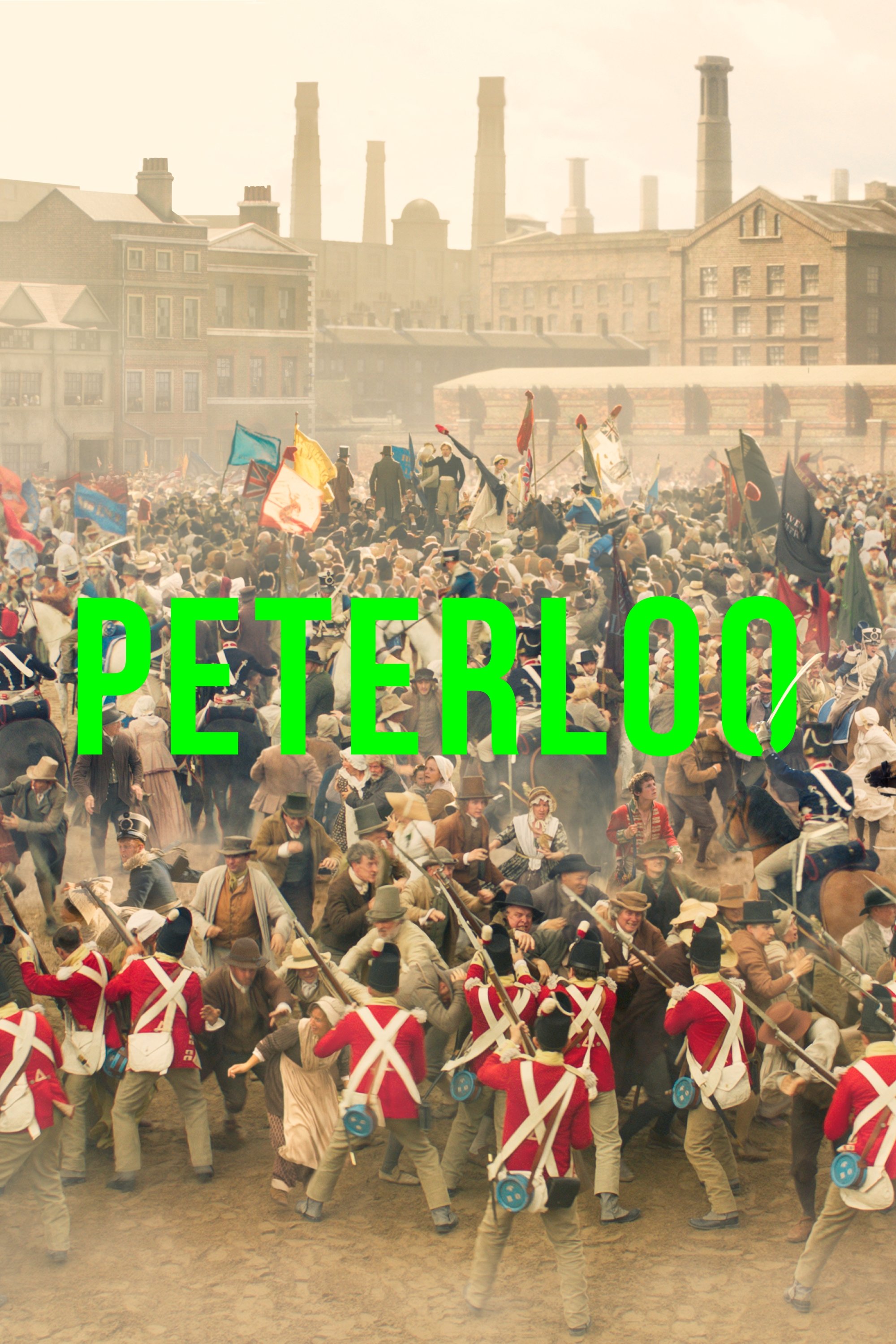 Peterloo2018-11-01An epic portrayal of the events surrounding the infamous 1819 Peterloo Massacre, where a peaceful pro-democracy rally at St Peter’s Field in Manchester turned into one of the bloodiest and most notorious episodes in British history. The massacre saw British government forces charge into a crowd of over 60,000 that had gathered to demand political reforms and protest against rising levels of poverty.More...
Peterloo2018-11-01An epic portrayal of the events surrounding the infamous 1819 Peterloo Massacre, where a peaceful pro-democracy rally at St Peter’s Field in Manchester turned into one of the bloodiest and most notorious episodes in British history. The massacre saw British government forces charge into a crowd of over 60,000 that had gathered to demand political reforms and protest against rising levels of poverty.More...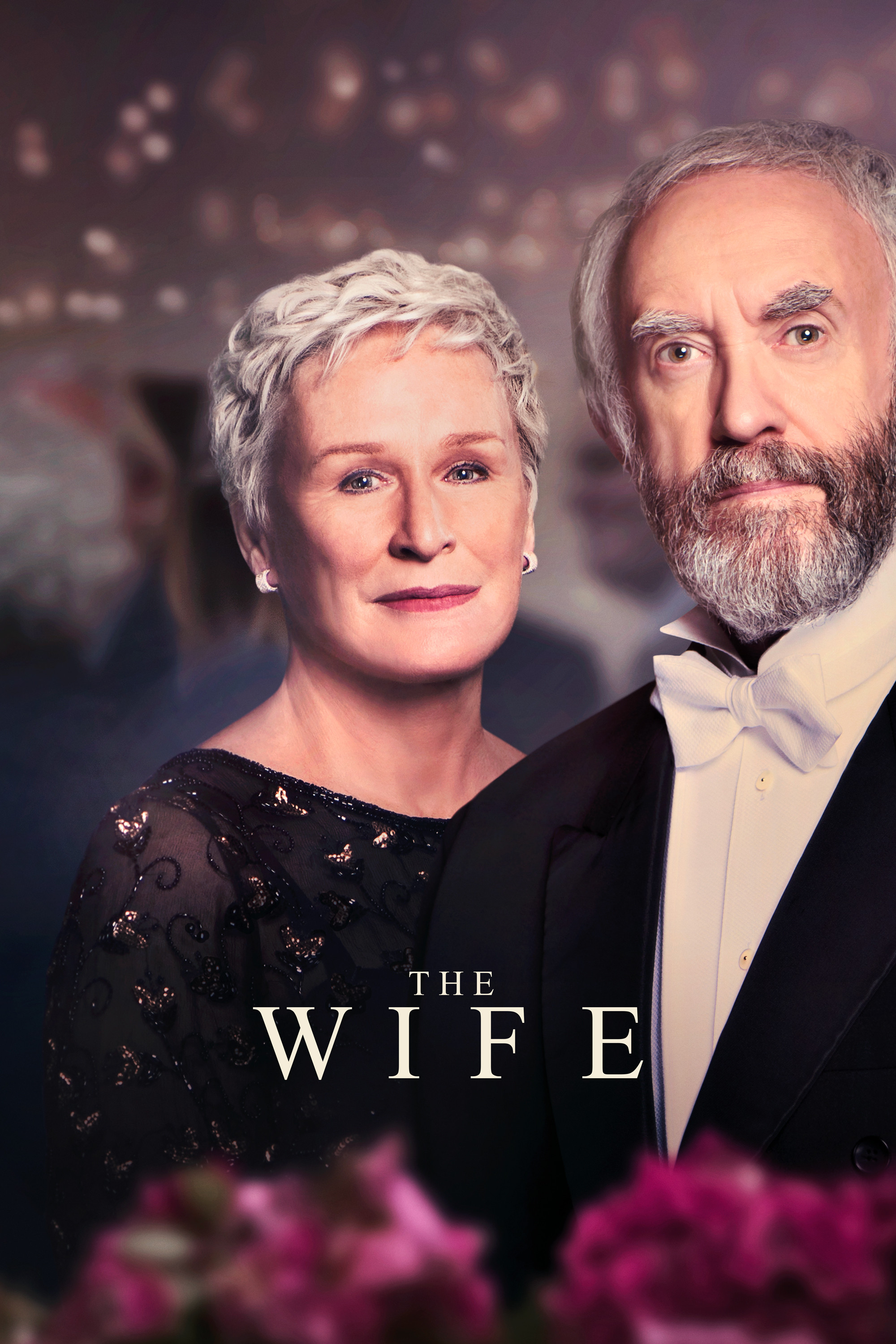 The Wife2018-08-02A wife questions her life choices as she travels to Stockholm with her husband, where he is slated to receive the Nobel Prize for Literature.More...
The Wife2018-08-02A wife questions her life choices as she travels to Stockholm with her husband, where he is slated to receive the Nobel Prize for Literature.More... Score: A Film Music Documentary2017-03-16Music is an integral part of most films, adding emotion and nuance while often remaining invisible to audiences. Matt Schrader shines a spotlight on the overlooked craft of film composing, gathering many of the art form’s most influential practitioners, from Hans Zimmer and Danny Elfman to Quincy Jones and Randy Newman, to uncover their creative process. Tracing key developments in the evolution of music in film, and exploring some of cinema’s most iconic soundtracks, 'Score' is an aural valentine for film lovers.More...
Score: A Film Music Documentary2017-03-16Music is an integral part of most films, adding emotion and nuance while often remaining invisible to audiences. Matt Schrader shines a spotlight on the overlooked craft of film composing, gathering many of the art form’s most influential practitioners, from Hans Zimmer and Danny Elfman to Quincy Jones and Randy Newman, to uncover their creative process. Tracing key developments in the evolution of music in film, and exploring some of cinema’s most iconic soundtracks, 'Score' is an aural valentine for film lovers.More...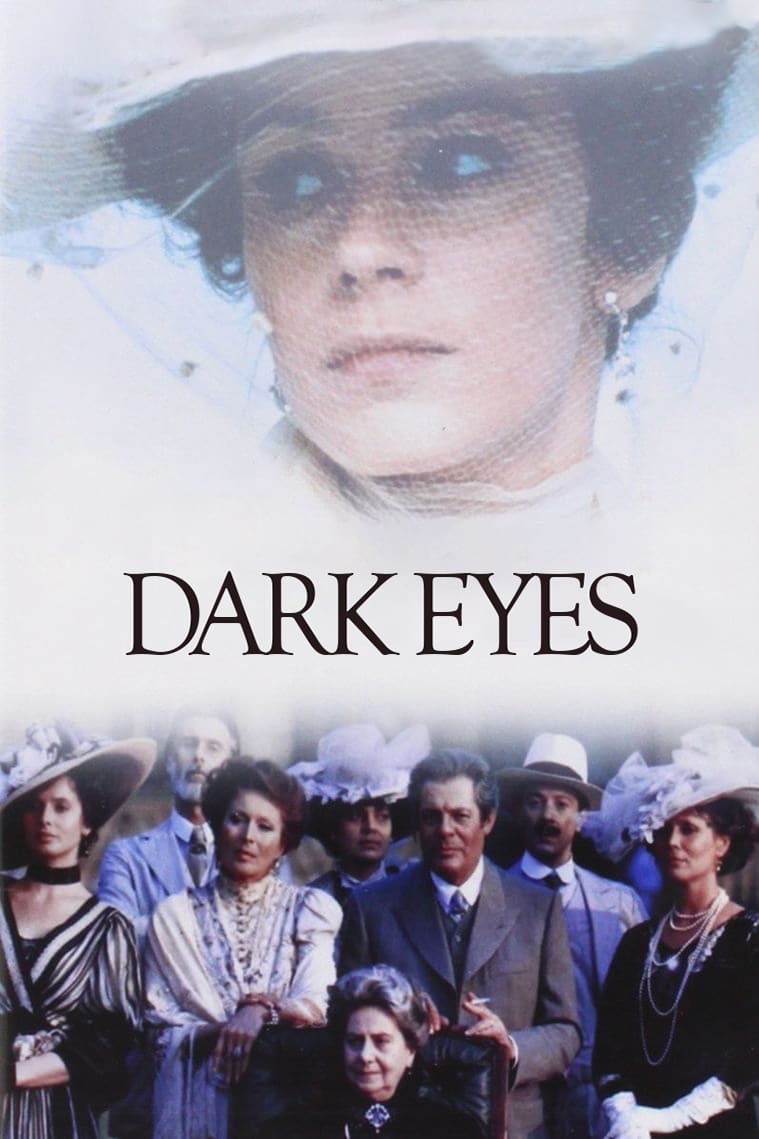 Dark Eyes1987-02-01Aboard a ship early in the 20th-century, a middle-aged Italian tells his story of love to a Russian.More...
Dark Eyes1987-02-01Aboard a ship early in the 20th-century, a middle-aged Italian tells his story of love to a Russian.More... One Million Yen Girl2008-07-19A 21-year-old girl is released from prison, only to deal with the neighborhood gossip about her and family conflicts. She decides to save one million yen, move to where no one knows her and keep repeating the process.More...
One Million Yen Girl2008-07-19A 21-year-old girl is released from prison, only to deal with the neighborhood gossip about her and family conflicts. She decides to save one million yen, move to where no one knows her and keep repeating the process.More...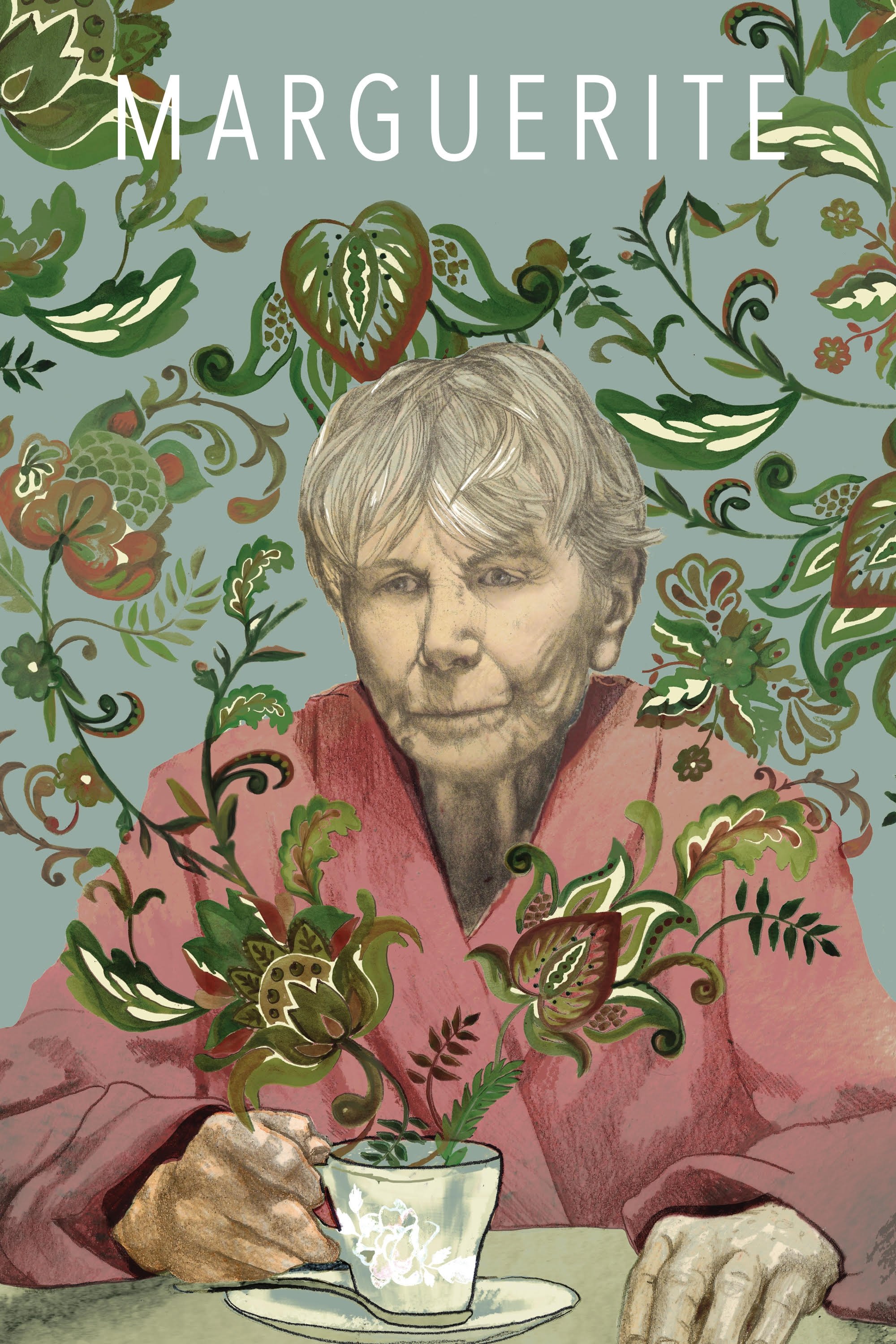 Marguerite2017-11-12An aging woman and her nurse develop a friendship that inspires her to unearth unacknowledged longing, and thus help her make peace with her past.More...
Marguerite2017-11-12An aging woman and her nurse develop a friendship that inspires her to unearth unacknowledged longing, and thus help her make peace with her past.More... Dil Bechara2020-07-24Kizie and Manny, two ordinary people brought together by a tragic twist, embark on a bittersweet and extraordinary journey into the heart of that crazy little thing called 'life'.More...
Dil Bechara2020-07-24Kizie and Manny, two ordinary people brought together by a tragic twist, embark on a bittersweet and extraordinary journey into the heart of that crazy little thing called 'life'.More... Together Together2021-04-23When young loner Anna is hired as the surrogate for Matt, a single man in his 40s, the two strangers come to realize this unexpected relationship will quickly challenge their perceptions of connection, boundaries and the particulars of love.More...
Together Together2021-04-23When young loner Anna is hired as the surrogate for Matt, a single man in his 40s, the two strangers come to realize this unexpected relationship will quickly challenge their perceptions of connection, boundaries and the particulars of love.More... Funan2019-03-06Cambodia, once the ancient kingdom of Funan, April 17th, 1975. The entire country falls under the tyranny of Angkar, the communist party of the Khmer Rouge. The cities are abandoned, the population is thrown to the roads and forced to walk towards an uncertain future…More...
Funan2019-03-06Cambodia, once the ancient kingdom of Funan, April 17th, 1975. The entire country falls under the tyranny of Angkar, the communist party of the Khmer Rouge. The cities are abandoned, the population is thrown to the roads and forced to walk towards an uncertain future…More... Holy Lands2019-01-16When lapsed Jew and former cardiologist Harry suddenly decides to spend his retirement as a pig farmer in Nazareth, Israel, the move deeply shocks his family and his new neighbours. Back in New York, Harry’s ex-wife Monica is trying to manage the lives of their adult children, Annabelle and David, as well as her own.More...
Holy Lands2019-01-16When lapsed Jew and former cardiologist Harry suddenly decides to spend his retirement as a pig farmer in Nazareth, Israel, the move deeply shocks his family and his new neighbours. Back in New York, Harry’s ex-wife Monica is trying to manage the lives of their adult children, Annabelle and David, as well as her own.More...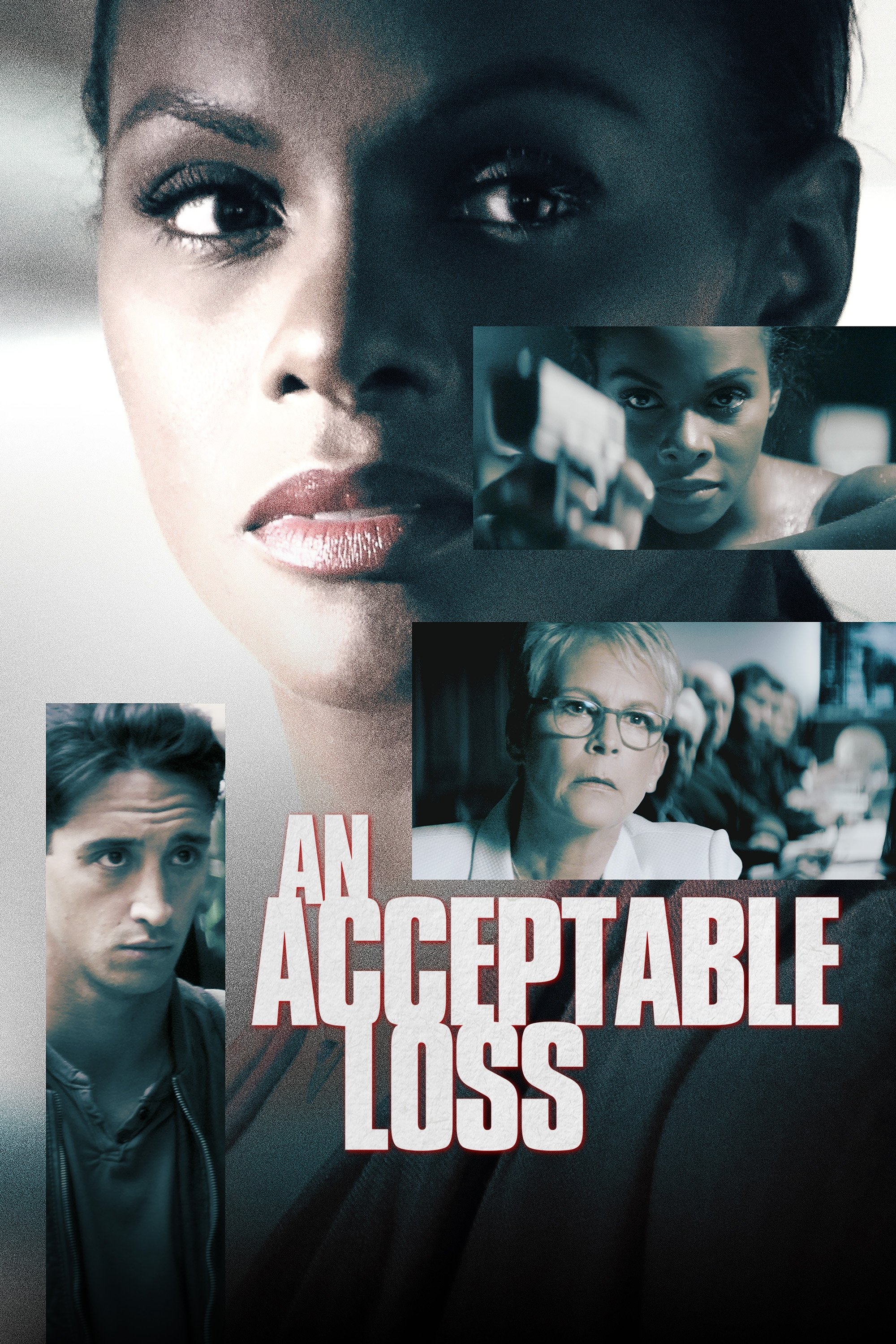 An Acceptable Loss2019-01-18Former top U.S. security adviser Elizabeth "Libby" Lamm is threatened by associates from her dark past including Rachel Burke a steely, commanding politician with an unwavering knack for achieving her goals. Colluding with Rachel is Adrian, an unyielding, patriotic chief of staff. Martin harbors another type of obsession with Libby in this story of betrayal and regret.More...
An Acceptable Loss2019-01-18Former top U.S. security adviser Elizabeth "Libby" Lamm is threatened by associates from her dark past including Rachel Burke a steely, commanding politician with an unwavering knack for achieving her goals. Colluding with Rachel is Adrian, an unyielding, patriotic chief of staff. Martin harbors another type of obsession with Libby in this story of betrayal and regret.More...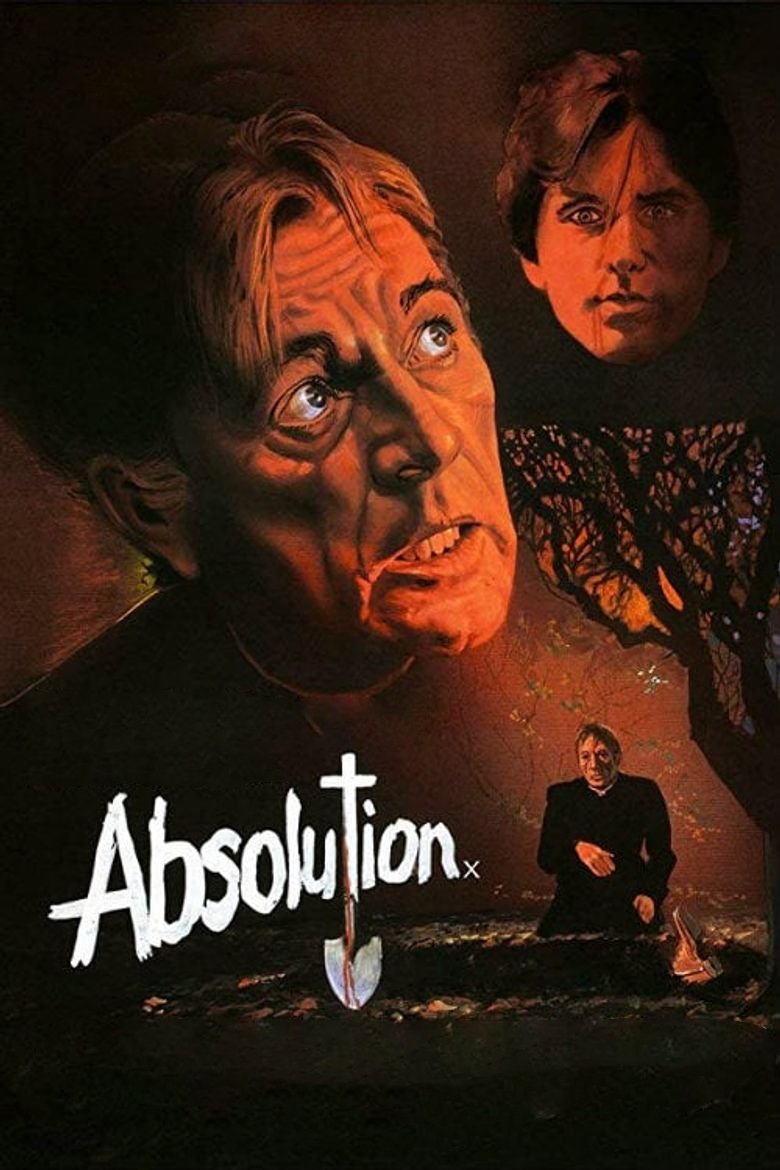 Absolution1978-06-05At a Catholic boys' school, domineering disciplinarian Father Goddard rules over his pupils with an iron hand. When one of his teenage charges confesses to murder, the dogmatic but deeply repressed Goddard finds his faith challenged and his life spiralling dangerously out of control.More...
Absolution1978-06-05At a Catholic boys' school, domineering disciplinarian Father Goddard rules over his pupils with an iron hand. When one of his teenage charges confesses to murder, the dogmatic but deeply repressed Goddard finds his faith challenged and his life spiralling dangerously out of control.More... Aida of the Trees2001-12-21In a world divided between two cities, the evil stone dragon Satam and his followers in the city of Petra wage war against the peaceful Tree People of Alborea. Beautiful Princess Aida, the daughter of Alborea's king, is taken prisoner by the Petrans and enslaved. As a servant, Aida meets and falls in love with handsome soldier Ramades. Ramades feels the same for Aida, but can their young love end the war between their two peoples?More...
Aida of the Trees2001-12-21In a world divided between two cities, the evil stone dragon Satam and his followers in the city of Petra wage war against the peaceful Tree People of Alborea. Beautiful Princess Aida, the daughter of Alborea's king, is taken prisoner by the Petrans and enslaved. As a servant, Aida meets and falls in love with handsome soldier Ramades. Ramades feels the same for Aida, but can their young love end the war between their two peoples?More... Pimp2018-11-09An urban love story set on the hard streets of the Bronx. A struggling female pimp, named Wednesday, grows up learning the game from her dad. Once he's gone she's left to look out for her prostitute mother and girlfriend Nikki.More...
Pimp2018-11-09An urban love story set on the hard streets of the Bronx. A struggling female pimp, named Wednesday, grows up learning the game from her dad. Once he's gone she's left to look out for her prostitute mother and girlfriend Nikki.More...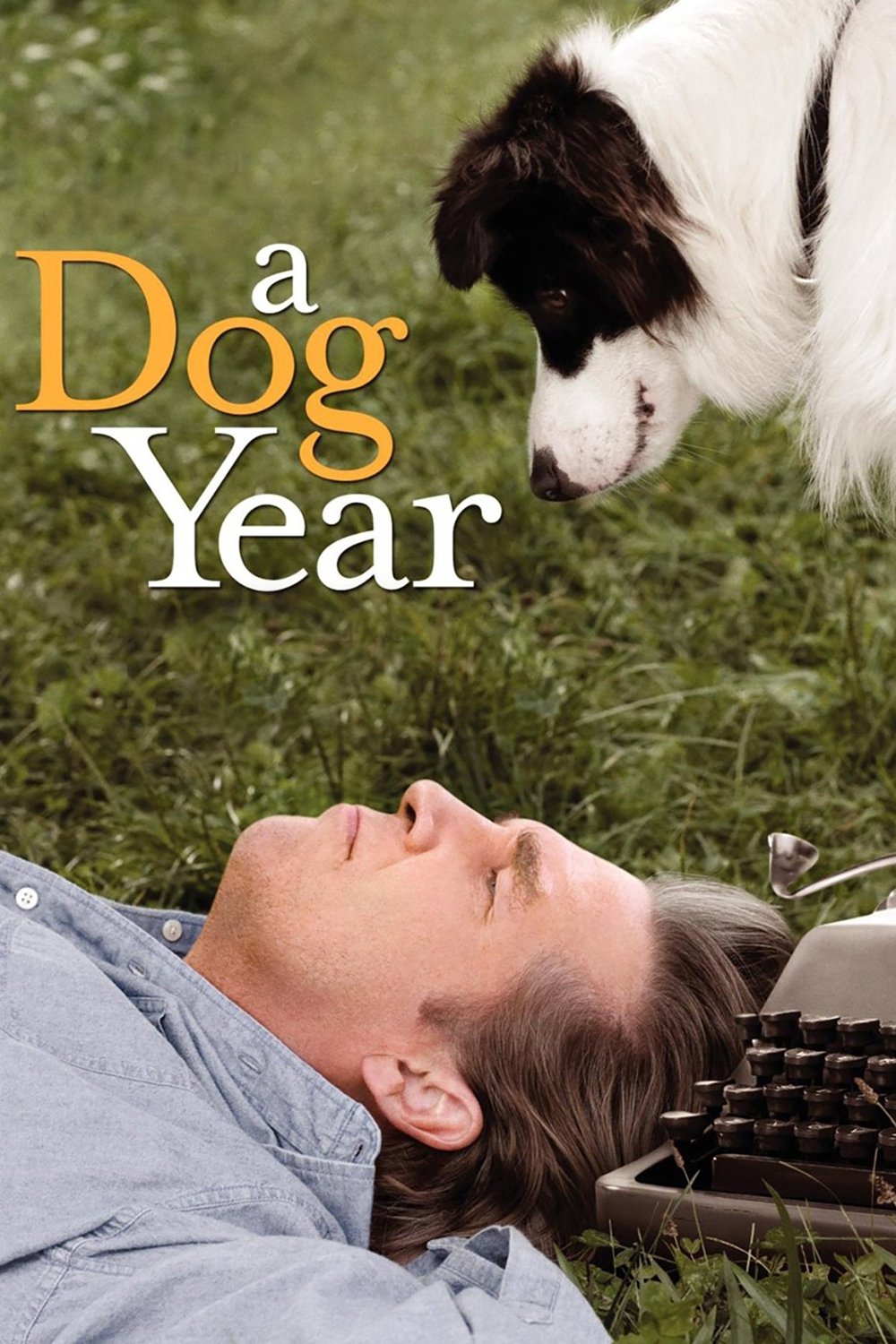 A Dog Year2009-09-03Jon Katz is close to burnout. He's a writer with writer's block; his wife has left for her sister's because he's emotionally distant; he rarely answers his phone. A kennel sends him a border collie that's undisciplined because of abuse. Despite a series of mishaps, Jon decides to keep trying with the dog, and he rents a dilapidated farm house to give the dog room to run. A local handyman refers Jon to a woman who might be able to help him train the dog. Reluctantly, Jon gives her a try. Is the dog the problem, or the owner?More...
A Dog Year2009-09-03Jon Katz is close to burnout. He's a writer with writer's block; his wife has left for her sister's because he's emotionally distant; he rarely answers his phone. A kennel sends him a border collie that's undisciplined because of abuse. Despite a series of mishaps, Jon decides to keep trying with the dog, and he rents a dilapidated farm house to give the dog room to run. A local handyman refers Jon to a woman who might be able to help him train the dog. Reluctantly, Jon gives her a try. Is the dog the problem, or the owner?More...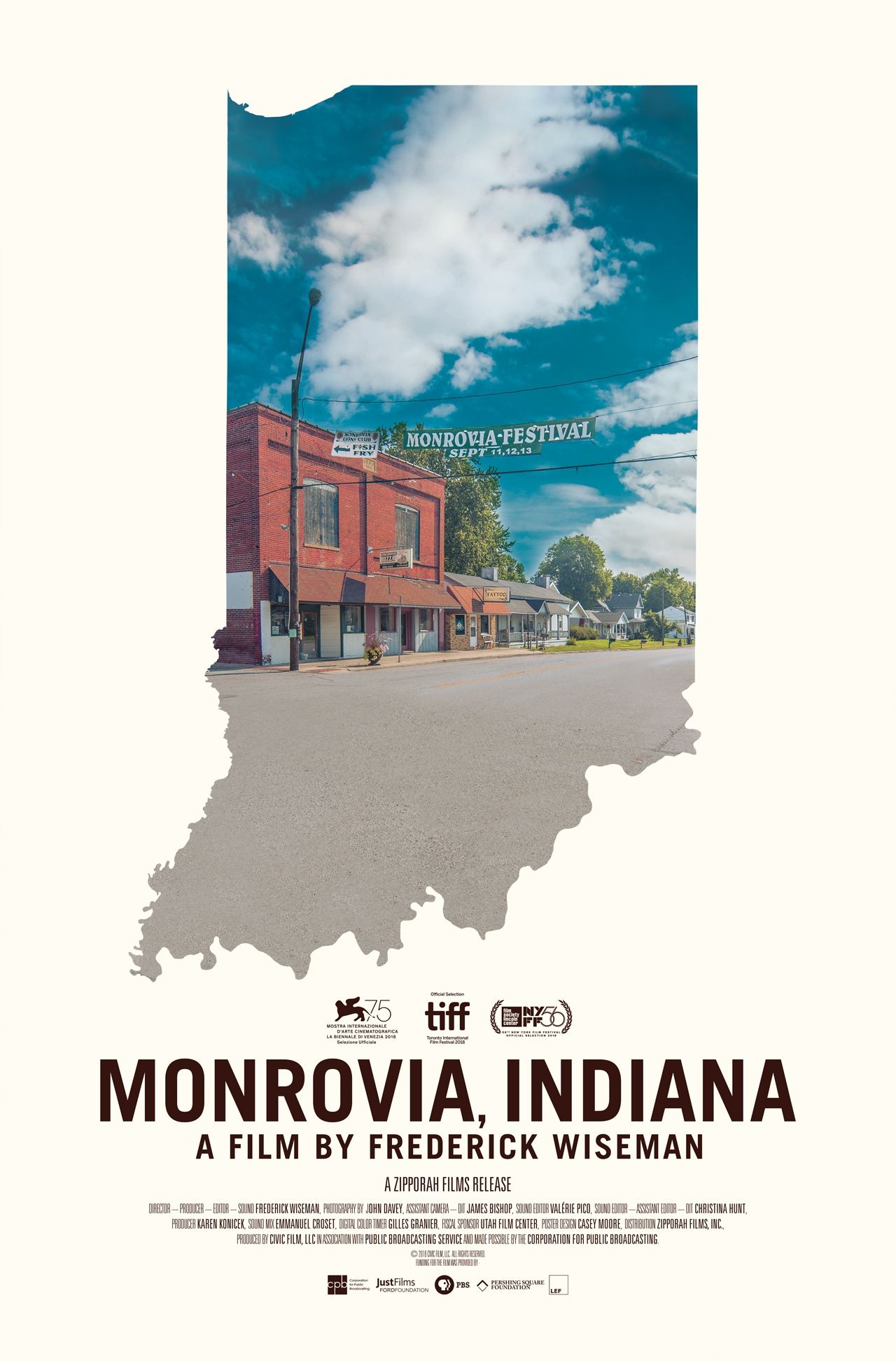 Monrovia, Indiana2018-09-07Monrovia, Indiana explores a small town in rural, mid-America and illustrates how values like community service, duty, spiritual life, generosity, and authenticity are formed, experienced, and lived along with conflicting stereotypes. The film gives a complex and nuanced view of daily life in Monrovia and provides some understanding of a way of life whose influence and force have not always been recognized or understood in the big cities on the east and west coasts of America and in other countries.More...
Monrovia, Indiana2018-09-07Monrovia, Indiana explores a small town in rural, mid-America and illustrates how values like community service, duty, spiritual life, generosity, and authenticity are formed, experienced, and lived along with conflicting stereotypes. The film gives a complex and nuanced view of daily life in Monrovia and provides some understanding of a way of life whose influence and force have not always been recognized or understood in the big cities on the east and west coasts of America and in other countries.More... Father Brown1954-06-08Works of art are disappearing, stolen by a master thief, a master of disguise. Father Brown has two goals: to catch the thief and to save his soul.More...
Father Brown1954-06-08Works of art are disappearing, stolen by a master thief, a master of disguise. Father Brown has two goals: to catch the thief and to save his soul.More... Jellyfish2019-02-15In Margate, England, life is not easy for teenager Sarah Taylor, between being bullied at school, being exploited by a dominant boss and having to take care of her depressive mother and her two siblings. But Sarah finds a way to channel her growing despair and fight adversity when her drama teacher gives her a new purpose.More...
Jellyfish2019-02-15In Margate, England, life is not easy for teenager Sarah Taylor, between being bullied at school, being exploited by a dominant boss and having to take care of her depressive mother and her two siblings. But Sarah finds a way to channel her growing despair and fight adversity when her drama teacher gives her a new purpose.More...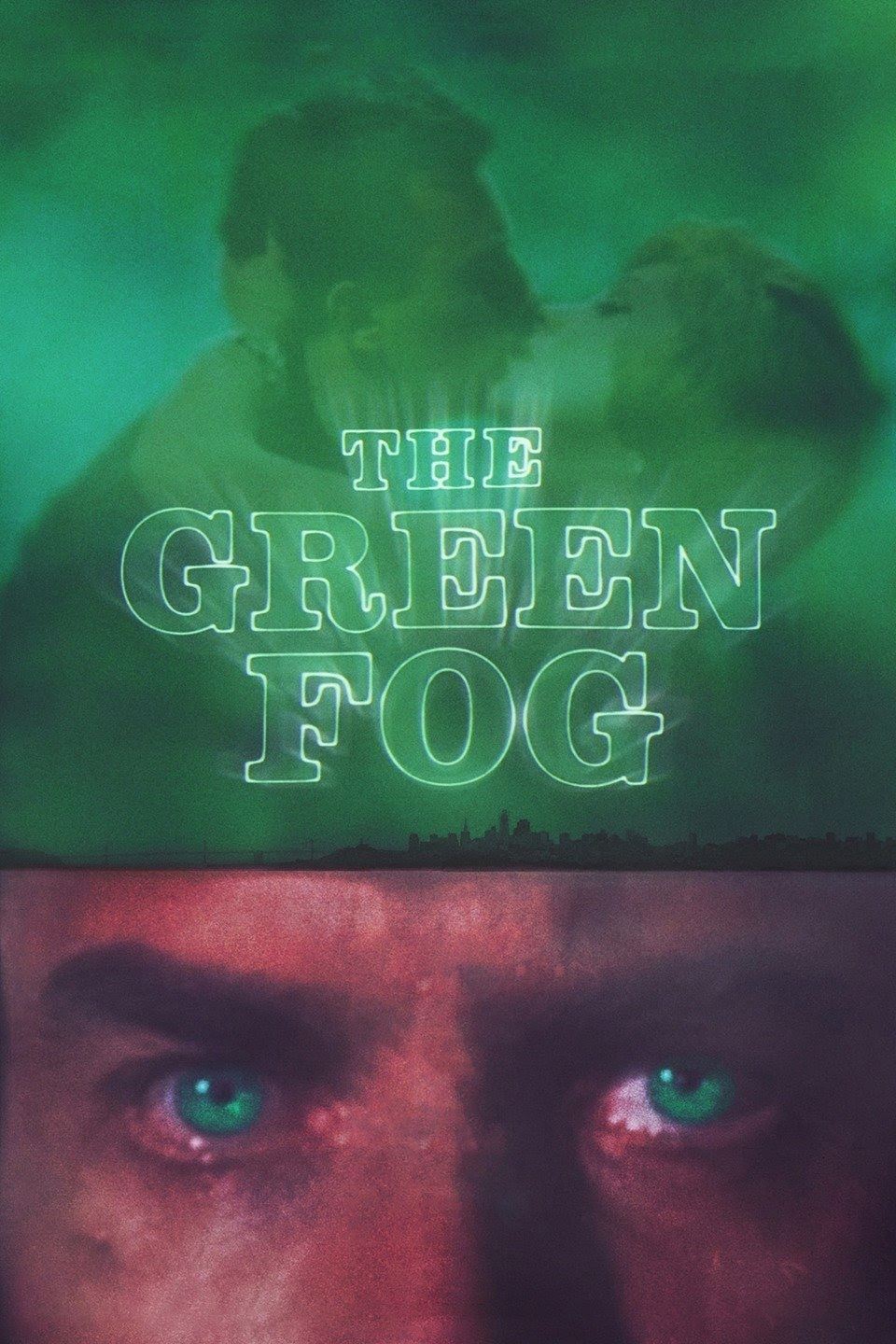 The Green Fog2018-01-05A tribute to a fascinating film shot by Alfred Hitchcock in 1958, starring James Stewart and Kim Novak, and to the city of San Francisco, California, where the magic was created; but also a challenge: how to pay homage to a masterpiece without using its footage; how to do it simply by gathering images from various sources, all of them haunted by the curse of a mysterious green fog that seems to cause irrepressible vertigo…More...
The Green Fog2018-01-05A tribute to a fascinating film shot by Alfred Hitchcock in 1958, starring James Stewart and Kim Novak, and to the city of San Francisco, California, where the magic was created; but also a challenge: how to pay homage to a masterpiece without using its footage; how to do it simply by gathering images from various sources, all of them haunted by the curse of a mysterious green fog that seems to cause irrepressible vertigo…More...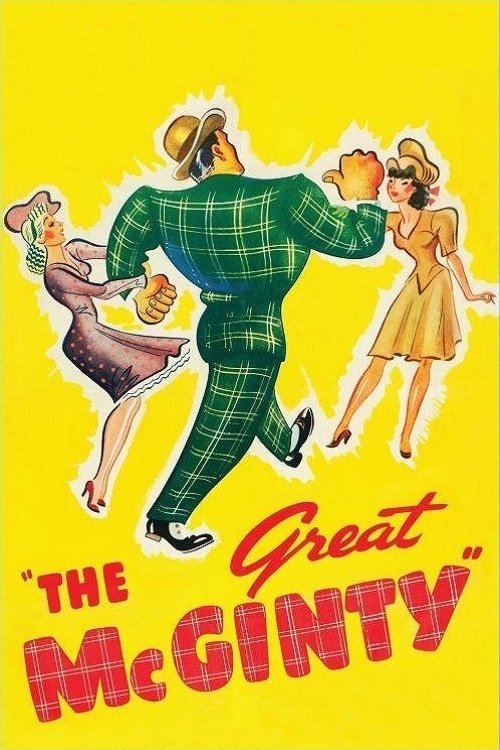 The Great McGinty1940-08-01Told in flashback, Depression-era bum Dan McGinty is recruited by the city's political machine to help with vote fraud. His great aptitude for this brings rapid promotion from "the boss," who finally decides he'd be ideal as a new, nominally "reform" mayor; but this candidacy requires marriage. His in-name-only marriage to honest Catherine proves the beginning of the end for dishonest Dan...More...
The Great McGinty1940-08-01Told in flashback, Depression-era bum Dan McGinty is recruited by the city's political machine to help with vote fraud. His great aptitude for this brings rapid promotion from "the boss," who finally decides he'd be ideal as a new, nominally "reform" mayor; but this candidacy requires marriage. His in-name-only marriage to honest Catherine proves the beginning of the end for dishonest Dan...More...
Similar Movies
Transamerica
 2005-02-14A transgender woman takes an unexpected journey when she learns that she had a son, now a teenage runaway hustling on the streets of New York.
2005-02-14A transgender woman takes an unexpected journey when she learns that she had a son, now a teenage runaway hustling on the streets of New York.The Horse Whisperer
 1998-02-01The mother of a severely traumatized daughter enlists the aid of a unique horse trainer to help the girl's equally injured horse.
1998-02-01The mother of a severely traumatized daughter enlists the aid of a unique horse trainer to help the girl's equally injured horse.Basquiat
 1996-08-09The brief life of Jean Michel Basquiat, a world renowned New York street artist struggling with fame, drugs and his identity.
1996-08-09The brief life of Jean Michel Basquiat, a world renowned New York street artist struggling with fame, drugs and his identity.Fight Club
 1999-10-15A ticking-time-bomb insomniac and a slippery soap salesman channel primal male aggression into a shocking new form of therapy. Their concept catches on, with underground "fight clubs" forming in every town, until an eccentric gets in the way and ignites an out-of-control spiral toward oblivion.
1999-10-15A ticking-time-bomb insomniac and a slippery soap salesman channel primal male aggression into a shocking new form of therapy. Their concept catches on, with underground "fight clubs" forming in every town, until an eccentric gets in the way and ignites an out-of-control spiral toward oblivion.The Poseidon Adventur...
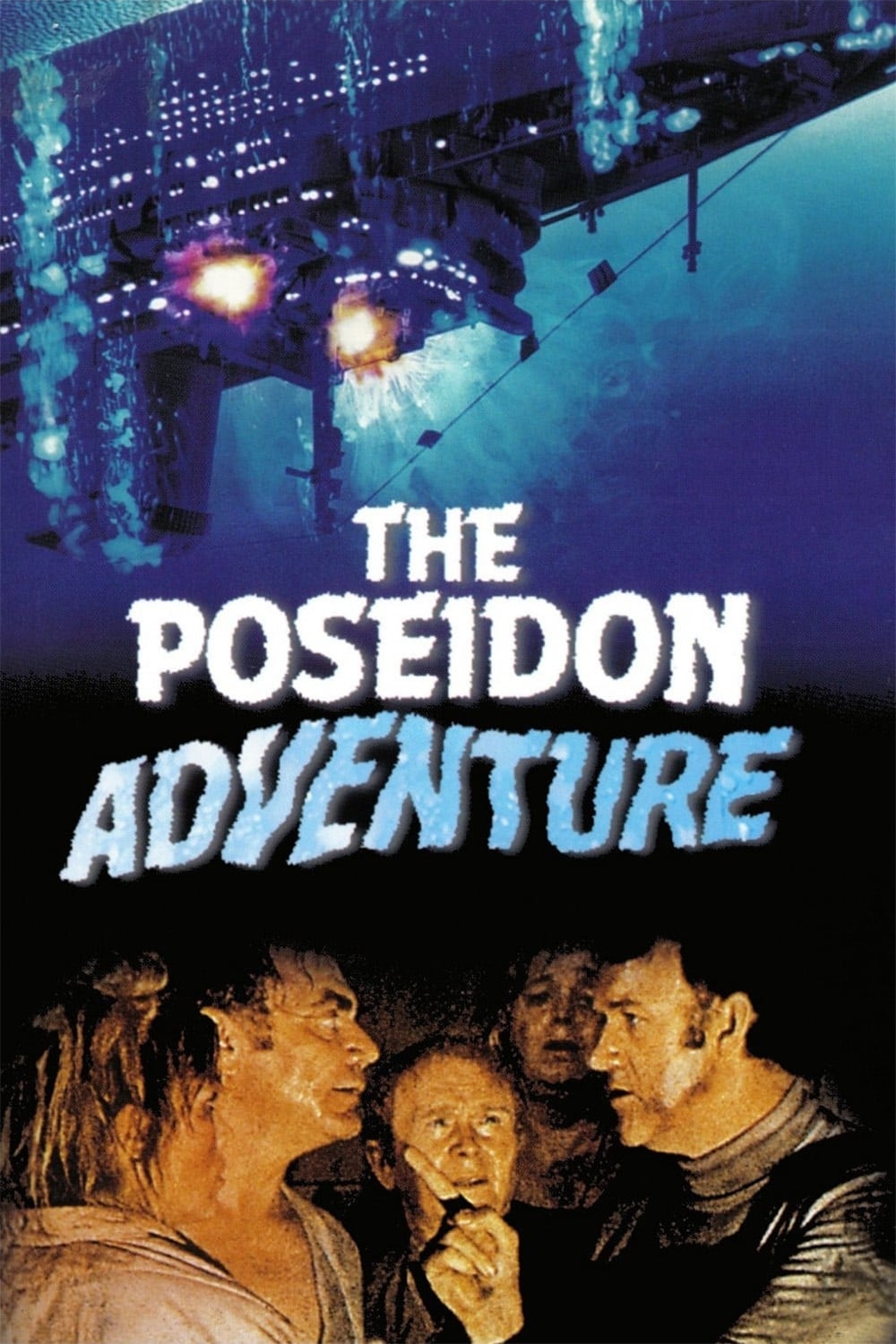 1972-12-01When their ocean liner capsizes, a group of passengers struggle to survive and escape.
1972-12-01When their ocean liner capsizes, a group of passengers struggle to survive and escape.Secret Beyond the Doo...
 1947-12-24After a whirlwind romance in Mexico, a beautiful heiress marries a man she barely knows with hardly a second thought. She finds his New York home full of his strange relations, and macabre rooms that are replicas of famous murder sites. One locked room contains the secret to her husband's obsession, and the truth about what happened to his first wife.
1947-12-24After a whirlwind romance in Mexico, a beautiful heiress marries a man she barely knows with hardly a second thought. She finds his New York home full of his strange relations, and macabre rooms that are replicas of famous murder sites. One locked room contains the secret to her husband's obsession, and the truth about what happened to his first wife.The Experiment
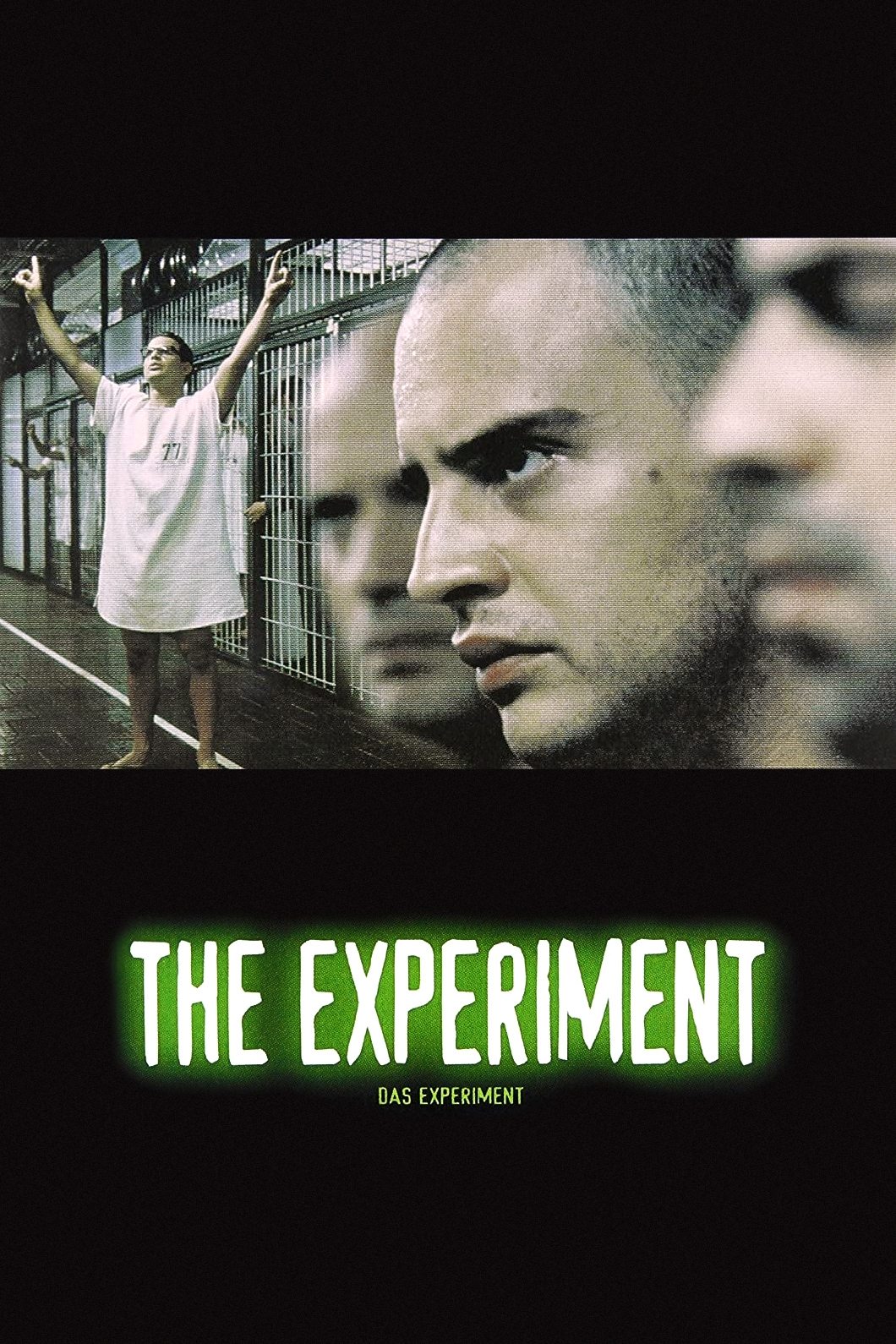 2001-03-0820 volunteers agree to take part in a seemingly well-paid experiment advertised by the university. It is supposed to be about aggressive behavior in an artificial prison situation. A journalist senses a story behind the ad and smuggles himself in among the test subjects. They are randomly divided into prisoners and guards. What seems like a game at the beginning soon turns into bloody seriousness.
2001-03-0820 volunteers agree to take part in a seemingly well-paid experiment advertised by the university. It is supposed to be about aggressive behavior in an artificial prison situation. A journalist senses a story behind the ad and smuggles himself in among the test subjects. They are randomly divided into prisoners and guards. What seems like a game at the beginning soon turns into bloody seriousness.To Die For
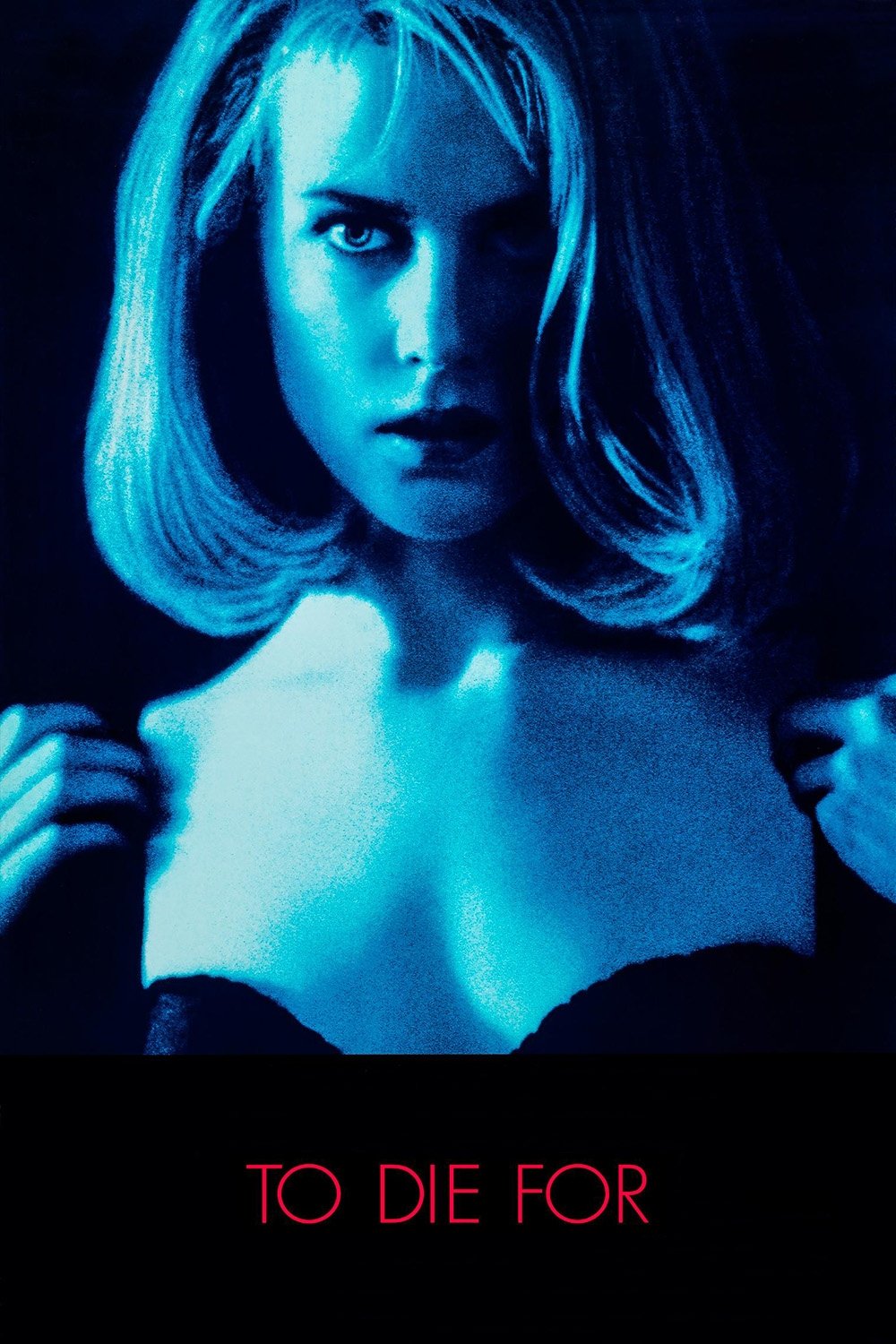 1995-09-22Suzanne Stone wants to be a world-famous news anchor and she is willing to do anything to get what she wants. What she lacks in intelligence, she makes up for in cold determination and diabolical wiles. As she pursues her goal with relentless focus, she is forced to destroy anything and anyone that may stand in her way, regardless of the ultimate cost or means necessary.
1995-09-22Suzanne Stone wants to be a world-famous news anchor and she is willing to do anything to get what she wants. What she lacks in intelligence, she makes up for in cold determination and diabolical wiles. As she pursues her goal with relentless focus, she is forced to destroy anything and anyone that may stand in her way, regardless of the ultimate cost or means necessary.Dances with Wolves
 1990-03-30Wounded Civil War soldier John Dunbar tries to commit suicide—and becomes a hero instead. As a reward, he's assigned to his dream post, a remote junction on the Western frontier, and soon makes unlikely friends with the local Sioux tribe.
1990-03-30Wounded Civil War soldier John Dunbar tries to commit suicide—and becomes a hero instead. As a reward, he's assigned to his dream post, a remote junction on the Western frontier, and soon makes unlikely friends with the local Sioux tribe.The Hours
 2002-12-27The story of three women searching for more potent, meaningful lives. Each is alive at a different time and place, all are linked by their yearnings and their fears. Their stories intertwine, and finally come together in a surprising, transcendent moment of shared recognition.
2002-12-27The story of three women searching for more potent, meaningful lives. Each is alive at a different time and place, all are linked by their yearnings and their fears. Their stories intertwine, and finally come together in a surprising, transcendent moment of shared recognition.Solaris
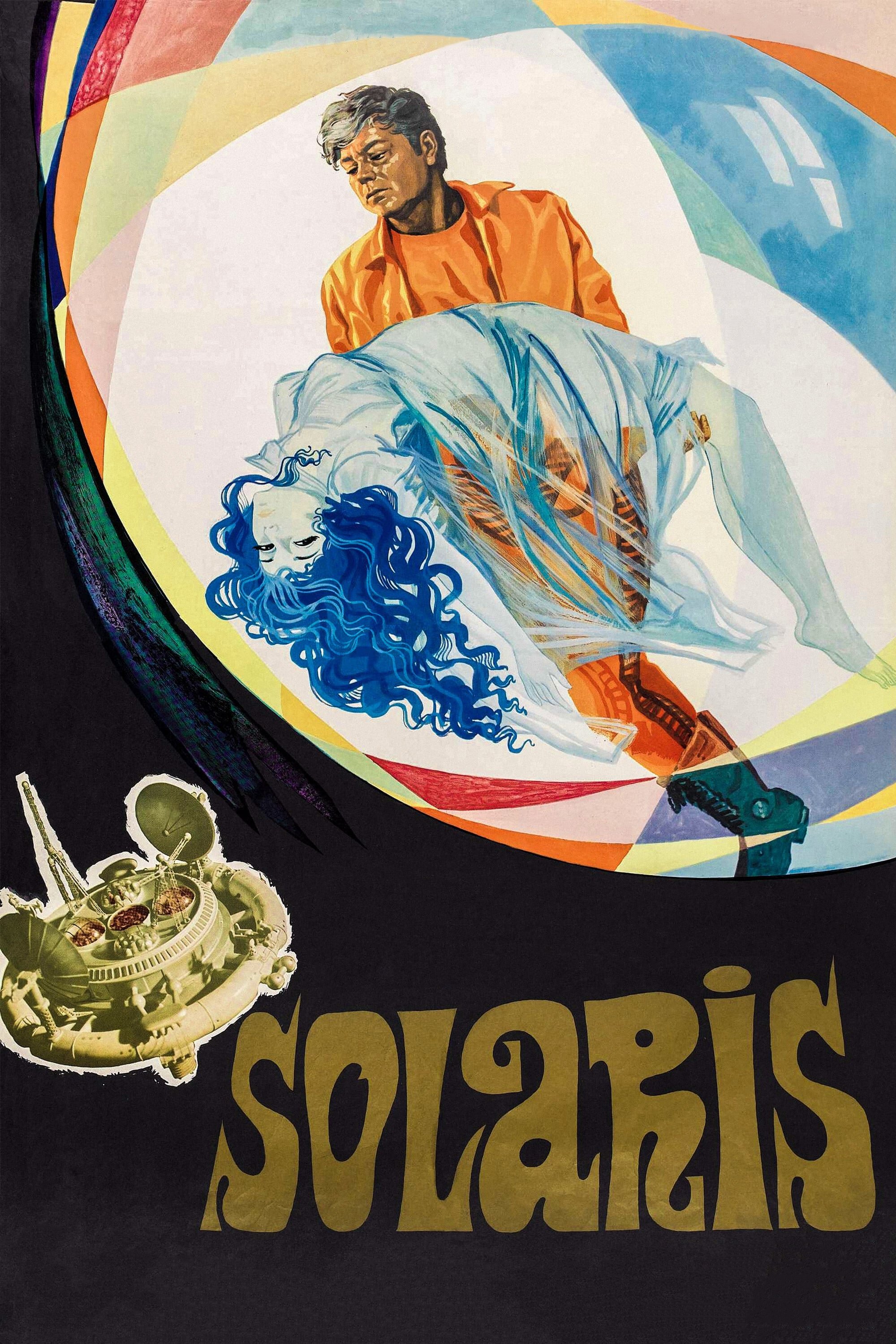 1972-03-20A psychologist is sent to a space station orbiting a planet called Solaris to investigate the death of a doctor and the mental problems of cosmonauts on the station. He soon discovers that the water on the planet is a type of brain which brings out repressed memories and obsessions.
1972-03-20A psychologist is sent to a space station orbiting a planet called Solaris to investigate the death of a doctor and the mental problems of cosmonauts on the station. He soon discovers that the water on the planet is a type of brain which brings out repressed memories and obsessions.The Terminal
 2004-06-17An Eastern European tourist unexpectedly finds himself stranded in JFK airport, and must take up temporary residence there.
2004-06-17An Eastern European tourist unexpectedly finds himself stranded in JFK airport, and must take up temporary residence there.To Kill a Mockingbird...
 1962-12-20Scout Finch, 6, and her older brother Jem live in sleepy Maycomb, Alabama, spending much of their time with their friend Dill and spying on their reclusive and mysterious neighbor, Boo Radley. When Atticus, their widowed father and a respected lawyer, defends a black man named Tom Robinson against fabricated rape charges, the trial and tangent events expose the children to evils of racism and stereotyping.
1962-12-20Scout Finch, 6, and her older brother Jem live in sleepy Maycomb, Alabama, spending much of their time with their friend Dill and spying on their reclusive and mysterious neighbor, Boo Radley. When Atticus, their widowed father and a respected lawyer, defends a black man named Tom Robinson against fabricated rape charges, the trial and tangent events expose the children to evils of racism and stereotyping.The Grapes of Wrath
 1940-03-15Tom Joad returns to his home after a jail sentence to find his family kicked out of their farm due to foreclosure. He catches up with them on his Uncle’s farm, and joins them the next day as they head for California and a new life... Hopefully.
1940-03-15Tom Joad returns to his home after a jail sentence to find his family kicked out of their farm due to foreclosure. He catches up with them on his Uncle’s farm, and joins them the next day as they head for California and a new life... Hopefully.Titanic
 1997-11-18101-year-old Rose DeWitt Bukater tells the story of her life aboard the Titanic, 84 years later. A young Rose boards the ship with her mother and fiancé. Meanwhile, Jack Dawson and Fabrizio De Rossi win third-class tickets aboard the ship. Rose tells the whole story from Titanic's departure through to its death—on its first and last voyage—on April 15, 1912.
1997-11-18101-year-old Rose DeWitt Bukater tells the story of her life aboard the Titanic, 84 years later. A young Rose boards the ship with her mother and fiancé. Meanwhile, Jack Dawson and Fabrizio De Rossi win third-class tickets aboard the ship. Rose tells the whole story from Titanic's departure through to its death—on its first and last voyage—on April 15, 1912.Full Metal Jacket
 1987-06-26A pragmatic U.S. Marine observes the dehumanizing effects the U.S.-Vietnam War has on his fellow recruits from their brutal boot camp training to the bloody street fighting in Hue.
1987-06-26A pragmatic U.S. Marine observes the dehumanizing effects the U.S.-Vietnam War has on his fellow recruits from their brutal boot camp training to the bloody street fighting in Hue.Out of Africa
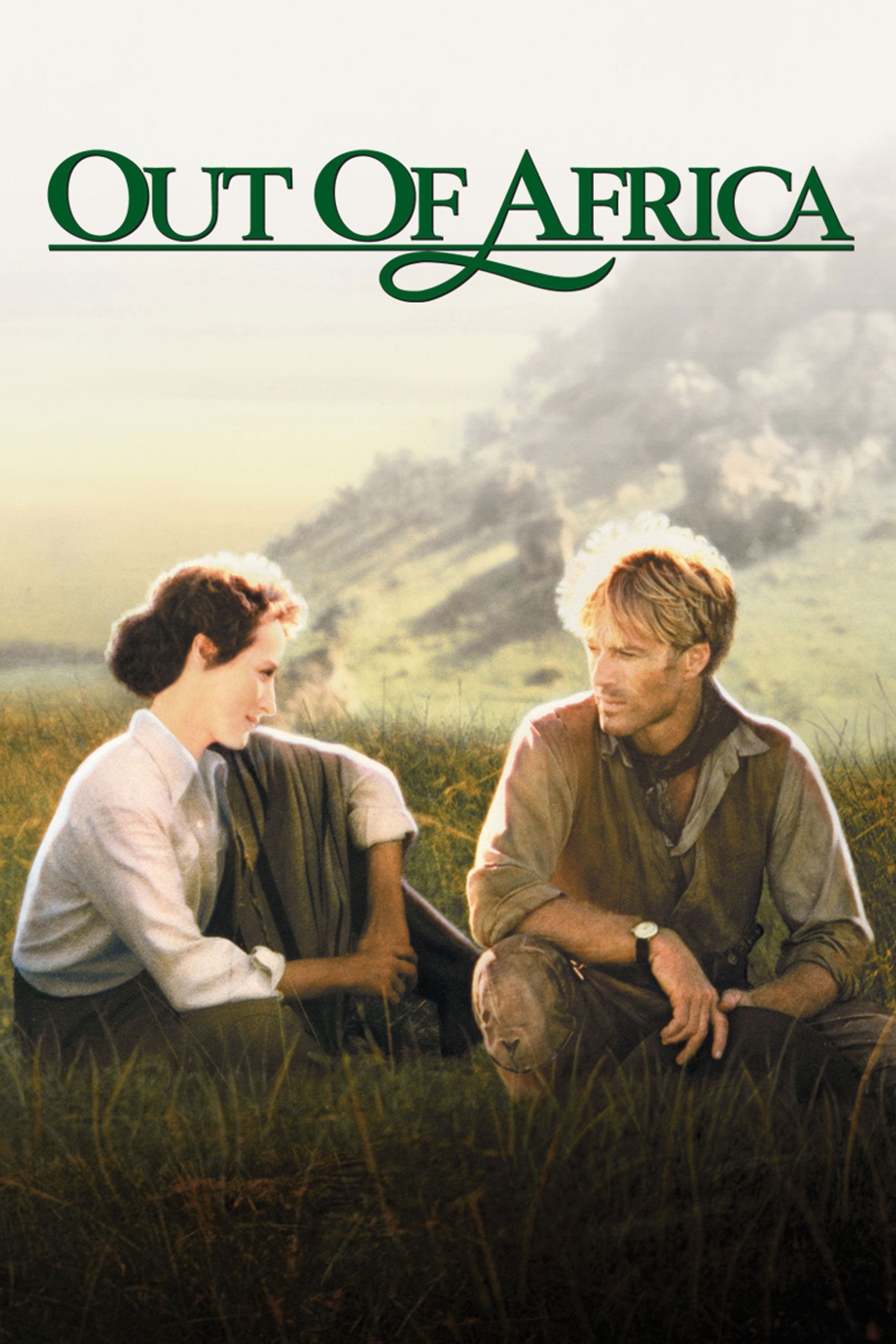 1985-12-20Tells the life story of Danish author Karen Blixen, who at the beginning of the 20th century moved to Africa to build a new life for herself. The film is based on her 1937 autobiographical novel.
1985-12-20Tells the life story of Danish author Karen Blixen, who at the beginning of the 20th century moved to Africa to build a new life for herself. The film is based on her 1937 autobiographical novel.Munich
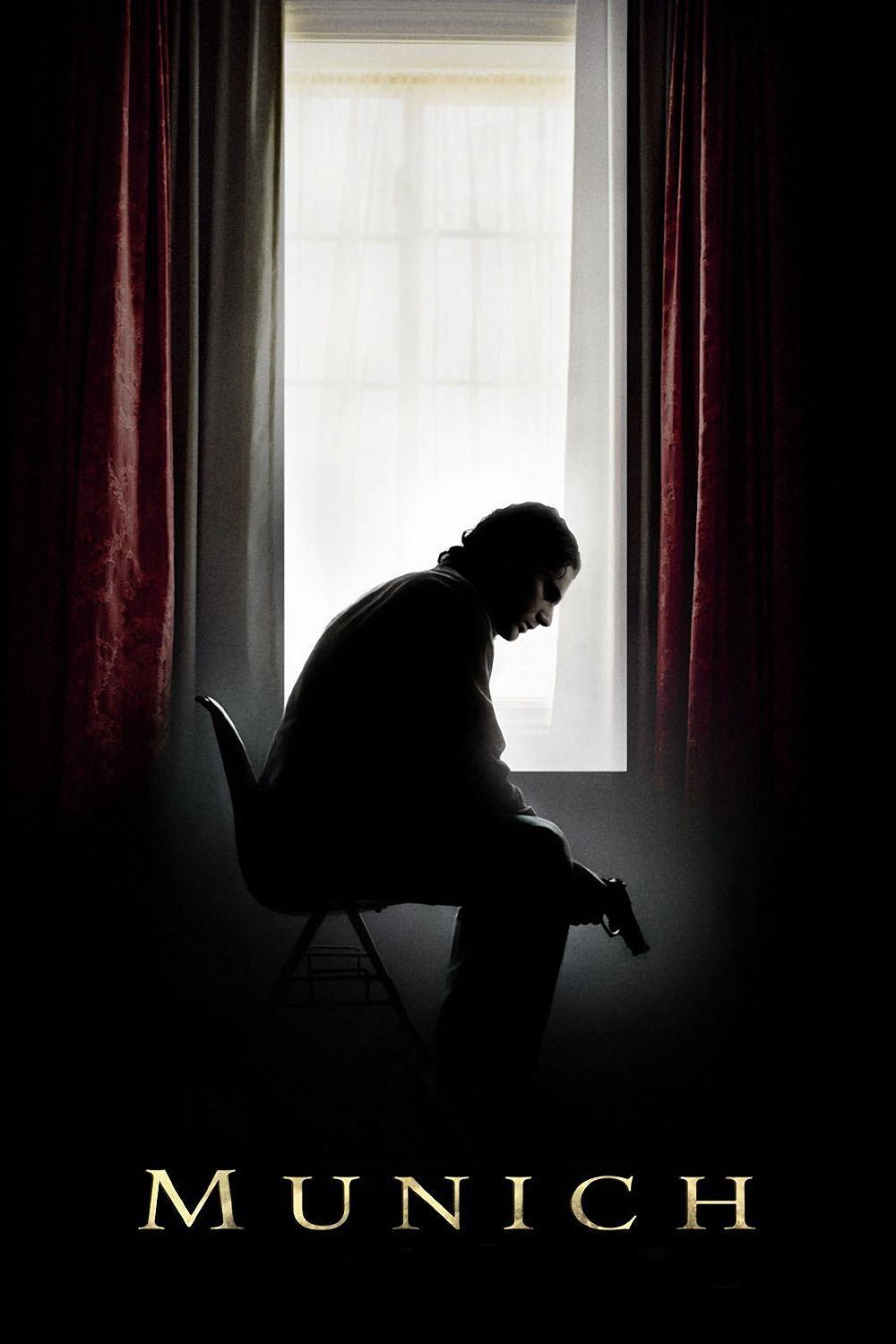 2005-12-23During the 1972 Olympic Games in Munich, eleven Israeli athletes are taken hostage and murdered by a Palestinian terrorist group known as Black September. In retaliation, the Israeli government recruits a group of Mossad agents to track down and execute those responsible for the attack.
2005-12-23During the 1972 Olympic Games in Munich, eleven Israeli athletes are taken hostage and murdered by a Palestinian terrorist group known as Black September. In retaliation, the Israeli government recruits a group of Mossad agents to track down and execute those responsible for the attack.Downfall
 2004-09-16In April of 1945, Germany stands at the brink of defeat with the Russian Army closing in from the east and the Allied Expeditionary Force attacking from the west. In Berlin, capital of the Third Reich, Adolf Hitler proclaims that Germany will still achieve victory and orders his generals and advisers to fight to the last man. When the end finally does come, and Hitler lies dead by his own hand, what is left of his military must find a way to end the killing that is the Battle of Berlin, and lay down their arms in surrender.
2004-09-16In April of 1945, Germany stands at the brink of defeat with the Russian Army closing in from the east and the Allied Expeditionary Force attacking from the west. In Berlin, capital of the Third Reich, Adolf Hitler proclaims that Germany will still achieve victory and orders his generals and advisers to fight to the last man. When the end finally does come, and Hitler lies dead by his own hand, what is left of his military must find a way to end the killing that is the Battle of Berlin, and lay down their arms in surrender.The Killing Fields
 1984-11-23New York Times reporter Sydney Schanberg is on assignment covering the Cambodian Civil War, with the help of local interpreter Dith Pran and American photojournalist Al Rockoff. When the U.S. Army pulls out amid escalating violence, Schanberg makes exit arrangements for Pran and his family. Pran, however, tells Schanberg he intends to stay in Cambodia to help cover the unfolding story — a decision he may regret as the Khmer Rouge rebels move in.
1984-11-23New York Times reporter Sydney Schanberg is on assignment covering the Cambodian Civil War, with the help of local interpreter Dith Pran and American photojournalist Al Rockoff. When the U.S. Army pulls out amid escalating violence, Schanberg makes exit arrangements for Pran and his family. Pran, however, tells Schanberg he intends to stay in Cambodia to help cover the unfolding story — a decision he may regret as the Khmer Rouge rebels move in.
